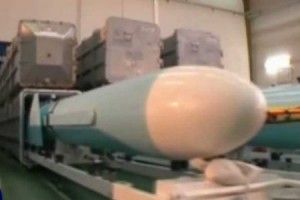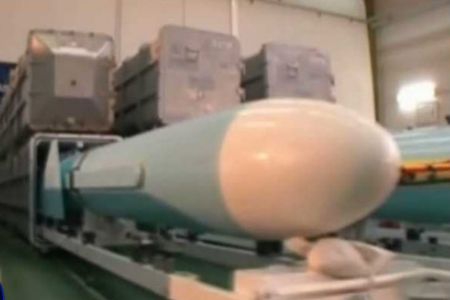(DUBAI,�United Arab Emirates) � While Iran�s military loudly trumpets every new project or purported advance in hopes of rattling the U.S. and its Gulf Arab allies, the U.S. is quietly answering with an array of proposed arms sales across the region as part of a wider effort to counter Tehran.

In the past two months, the Defense Department has notified�Congress�of possible deals totaling more than $11.3 billion to Gulf states such as Qatar and Kuwait, which are seen as some of America�s critical front-line partners in containing Iran and protecting�oil�shipping lanes.
The proposed sales � including Patriot missile batteries and Apache attack helicopters � are still modest compared with massive Gulf purchases such as Saudi Arabia�s $60 billion package last year. That deal included more than 80 new F-15SA fighter jets, missiles, radar warning systems and other equipment.
But the recent flurry of expected sales from U.S. firms, approved by the Pentagon and outlined in notifications to Congress, underscores the growing emphasis among nervous Gulf states on seeking quick upgrades to existing firepower and defensive networks.
The arms sale need congressional approval, but usually few objections are raised for key allies such as Gulf nations.
Gulf worries about possible military action against Iran have increased with diplomatic efforts making little headway in easing the showdown over Tehran�s nuclear program, which the West and others fear could eventually develop atomic weapons. Iran says it only seeks reactors for energy and medical uses.
An Israeli newspaper, Haaretz, reported Sunday that National Security Adviser Tom Donilon briefed Israeli officials on possible U.S. attack plans if diplomacy and sanctions fail to pressure Tehran to scale back its nuclear enrichment program. A senior Israeli official, speaking on condition of anonymity to discuss confidential talks, denied the Haaretz report.
The news reports reflect the uncertainties in the region with negotiations nearly stalled and Iran trying to push back against deepening sanctions on its vital oil exports.
�There was a bit of a breather in the region when (nuclear) talks resumed,� said Bruno Tertrais, senior researcher at the Foundation for Strategic Research in Paris. �That is quickly fading.�
In its place: a sense of military adjustments moving at a faster pace.
Washington plans to keep at least 13,500 troops in Kuwait � down slightly from the current 15,000 � but with an expanded mission as a potential rapid-reaction force for the region. The Pentagon also has scores of warplanes and other assets across the Gulf, including air bases in the United Arab Emirates and Saudi Arabia.
At sea, the U.S. Navy plans to lead maneuvers in September that include minesweeping drills � a clear response to Iran�s threats to block oil tankers from passing through the Strait of Hormuz at the mouth of the Gulf in retaliation for the tightening Western sanctions.
The U.S. is also boosting its Gulf flotilla, directed by the Navy�s 5th Fleet in Bahrain. Among the additions: a floating assault base aboard the retrofitted USS Ponce and accelerated deployment of the aircraft carrier USS John C. Stennis to ensure two carriers are in the Gulf region at all times.
�We are seeing more and more bluster from the Iranian side and the U.S. and Gulf allies showing the Iranians they are a united front,� said Theodore Karasik, a regional security expert at the Dubai-based Institute for Near East and Gulf Military Analysis. �The Gulf states are nervous. They show this nervousness by buying more weapons.�
Among the proposed U.S. sales is a $4.2 billion package to Kuwait for 60 Patriot missiles and related systems to �strengthen its homeland defense and deter regional threats,� the Defense Department said in a statement. Kuwait could also buy, pending congressional approval, a $49 million arsenal of 300 Hellfire II missiles, which can be launched from helicopters or drones.
For Qatar � which hosts one of the Pentagon�s command hubs � the Defense Department is seeking clearance for a $6.6 billion air support upgrade that includes 24 AH-64D Apache attack helicopters, 12 Blackhawk helicopters and 22 Seahawk helicopters, with options to buy six more.
The Apaches would assist with �protection of key oil and infrastructure and platforms which are vital to U.S. and Western economic interests,� the Defense Department said.
Oman, which shares control of Hormuz with Iran, is seeking an $86 million purchase that includes 55 Sidewinder missiles as part of plans to upgrade its F-16 fighter fleet.
For decades, the Gulf had looked mostly to Washington for its weapons, but European arms deals also appear on the rise.
In Berlin, German government spokesman Georg Streiter said Monday there has been an �expression of interest� by Qatar in about 200 Leopard II tanks. A similar Leopard tank deal with Saudi Arabia was reported last year by German media.
In May, Saudi Arabia signed a $3 billion deal with Britain for air force training planes apparently linked to a 2007 agreement to buy 72 Eurofighter Typhoon fighters.
The weapons requests also reinforce the toughening stance against Iran by main rival Saudi Arabia and the other Gulf Arab states. The six-nation Gulf Cooperation Council has repeatedly warned Tehran about �meddling� in Gulf affairs. Saudi Arabia and Qatar have taken a leading role in supporting Syrian rebels trying to topple Bashar Assad�s regime, which is Iran�s main Mideast ally.
Last week, a commander of Iran�s powerful Revolutionary Guards warned that �hated Arab� rivals could face repercussions for their efforts to bring down Assad.
Although the Gulf Arab states have no direct ties to Israel, any military strike on Iran by the Jewish state could require some degree of coordination, with Washington likely to play an intermediary role. Gulf military forces also could be quickly drawn into a wider conflict or a confrontation over the Strait of Hormuz, the passageway for one-fifth of the world�s oil.
�Amid the standoff between Iran, Israel and the West, there�s another side that is often overlooked,� said Sami al-Faraj, director of the Kuwait Center for Strategic Studies. �It is the Gulf states. They are the ones caught in the middle.�
The Iran Project is not responsible for the content of quoted articles.











